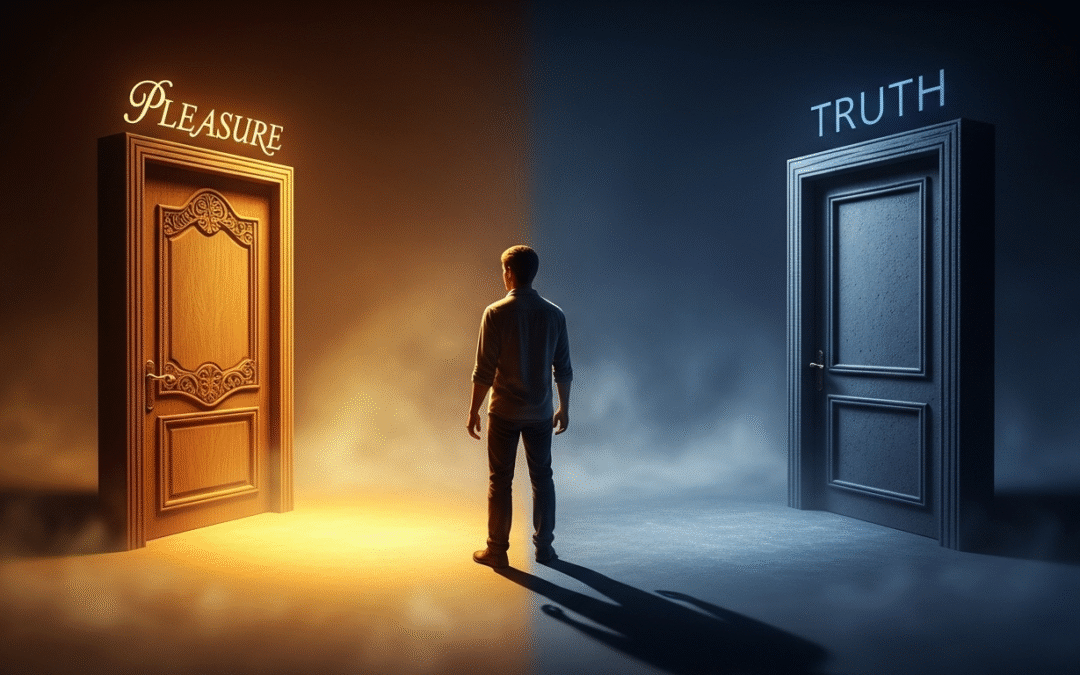Robert Nozick’s “experience machine” offers a disarmingly straightforward challenge. Imagine a machine that allows you to plug in and experience any life you desire, love, success, adventure, or peace of mind. You would not know it was simulated from the inside; the experiences would be as real to you as real ones. The question is uncompromisingly simple: would you plug in?
At first, the allure seems irresistible. Human life is often a misery, and here is the perfect way out. The machine promises happiness without question, pleasure without pain. If ultimate goodness is happiness, why hesitate? Refusal would seem irrational to many, almost masochistic, foregoing heaven for the sake of “reality.”
And yet most recoil. Nozick argued this hesitation reveals something deep: that we desire more than happiness. We do not simply want to feel good; we want to be actual. Identities, relationships, and achievements are meaningless if they are artificial. The scientist who “discovers” a cure within the machine has saved no life. The lover whose arms are warm within the program is not human, but code. What gets lost when we plug in is reality itself.
This is the paradox. Our quest for happiness is not just a question of sensation. It is also a question of meaning. And meaning seems to demand reality. To trade truth, even for happiness, is to make of life a play. The play may be beautiful, but the curtain collapses the moment we know it is all illusion.
Yet neither can the machine’s appeal be denied. For the individual broken by pain, trauma, or illness, is the distinction between real and artificial relief so ultimate? If one is drowning in unimaginable agony, then perhaps counterfeit ecstasy is still salvation. In this way, the thought experiment also exposes privilege: only those with some joy remaining in their lives can afford to romanticize pain as “real.”
The question cuts even more sharply when we look at our world today. Aren’t we already halfway jacked in? Social media creates curated realities. Entertainment involves us in stories more compelling than our own. Virtual reality comes closer each year to a perfect simulation. Perhaps the question is not so much whether we would choose the machine, but whether we have already, piecemeal, without ever noticing it.
Still, the resistance holds. Even in suffering, many cling to reality with fierce loyalty. We crave a life that is significant, and “significance” requires commitment to truth. To choose illusion is to relinquish the possibility of authentic importance. Pleasure may fill our existence, but without reality, can it satisfy our souls?
Nozick’s experiment forces us to strip our priorities naked. For some, uninterrupted happiness outweighs authenticity. For others, truth, bitter and painful as it may be, weighs more heavily than comfort. The most discomfiting disclosure, perhaps, is that there is no universal answer. Instead, the question becomes a mirror, reflecting back who we truly are: comfort-seekers, or truth-seekers.
